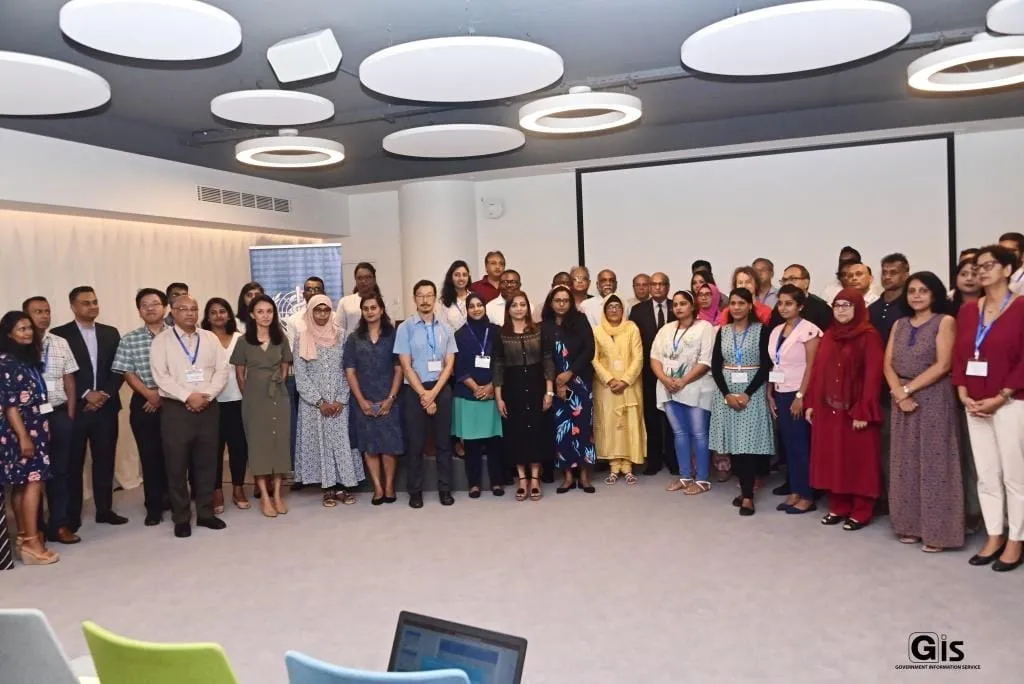Mauritius: A five-day workshop aiming to strengthen the Pharmacovigilance System (PVS) of Mauritius opened this morning at the Caudan Arts Centre in Port Louis.
The Director General of Health Services of the Ministry of Health and Wellness, Dr Bhooshun Ori, the World Health Organization (WHO) Representative in Mauritius, Dr Anne Marie Ancia, and other personalities were also present at the opening ceremony.
The objectives of this workshop are to namely: assess the PVS using the Global Benchmarking Tool (GBT); Provide recommendations on strengthening the PVS; Build the capacity of the PVS and concerned stakeholders; Raise awareness of stakeholders on the PVS and reporting among healthcare professionals and; Provide a roadmap for the maturation of the system to GBT Maturity Level Three.
Dr Ori, speaking on behalf of the Minister of Health and Wellness, Dr Kailesh Jagutpal, highlighted that the purpose of this workshop is to validate the restructuring of the Pharmacovigilance Unit of the Ministry and ensure that the risk-benefit ratio of registered pharmaceutical products, both original and generic in circulation remains the same throughout the life-cycle of the medicine.
“It is of utmost importance that the Pharmacovigilance Unit spots dangers related to the use of medications by patients as well as ensure security, adequacy, and judicious use of medications,” he pointed out.
Furthermore, Dr Ori stressed that the broadening of Pharmacovigilance in recent years and the theme of the WHO on the event World Patient Safety Day last year, which was focused on Medication Safety, have both prompted the Ministry to adapt and improve the pharmacovigilance system.
On this note, the Director General observed that the Pharmacovigilance Unit, after restructuring, will constitute a Technical Committee that would be responsible for the collection and analysis of declarations about adverse effects reporting and uploading of the information in the ad hoc software specialised in Pharmacovigilance which will be then referred to the Causality Assessment Committee.
This committee, he underlined, will be responsible for establishing the causality for reported adverse reactions related to the use of medicinal products and will also be assigned the job of collating and capturing data from the UPPSALA Monitoring Centre for analysis and uploading information from Mauritius.
As regards the Causality Assessment Committee, the Director General indicated that it will be composed of medical doctors, nursing cadre and pharmacists who will apprise the National Pharmacovigilance Committee Unit, which will have the responsibility to make an appropriate decision based on the data provided by the Technical Committee and the Causality Assessment Committee.
“The decision will either be to issue an alert, to withdraw the drug from the market, or to authorise the drug to return on the market and after all these steps, the National Pharmacovigilance Committee will then propose decisions to the Director General, Health Services of the Ministry and the Senior Chief Executive for final vetting,” Dr Ori stated.
The Director General further added that in order to encourage reporting of Adverse Drug Reactions, several measures will be initiated. These include: the display of posters in all public and private health establishments, TV Spots will be shown in hospital waiting for lounges and; ongoing Powerpoint Presentations will be conducted by Senior Pharmacists of the Technical Committee to sensitise healthcare professionals on the importance of reporting Adverse Drug Reactions.
Moreover, Dr Ori pointed out that a newsletter regarding local and international news on Pharmacovigilance will be published on the Ministry’s website and distributed to all healthcare institutions quarterly.
On this note, he urged participants to make the most of this workshop and to listen to what the pharmacovigilance experts from the Medicines Control Authority of Zimbabwe have to say, as the ultimate objective of this workshop is to make the pharmacovigilance system in Mauritius a robust one.
For her part, Dr Ancia highlighted that while the WHO has a very strict and rigorous prequalification system based on the safety and the efficacy of drugs and vaccines, globalised trade and illicit, unregulated production of pharmaceuticals do undermine regulations.
“At the same time, antimicrobial resistance, one of the most concerning threats to global health today, is challenging the effectiveness of many commonly used medicines due to over or irrational prescriptions or due to self-medication, amongst others,” she informed.
There is, therefore, an increasing need for strong regulatory frameworks and strong quality insurance systems for pharmaceuticals products today in order to ensure patients are treated with and have access to safe, effective and quality drugs, Dr Ancia emphasised.
Pharmacovigilance, the WHO Representative underlined, is an integral and important part of systems for namely: quality insurance of pharmaceuticals products, improved quality of health care and; fighting against antimicrobial resistance. “Thus, surveying, collecting data on side effects and analysing and studying the effects of pharmaceuticals products on our respective population and patients allows us to detect any negative effects early, thereby helping to take timely action,” she stressed.
In addition, Dr Ancia highlighted that the emphasis on a strong pharmacovigilance system is becoming stronger with the increase in new medical products and vaccines that are available on the market.
“Hence, it is vital that efficient and sustainable pharmacovigilance and surveillance system be established to collect information regularly on the expected and unexpected adverse events of medications consumed by an individual,” she added.
On this note, the WHO Representative reiterated the commitment of the WHO and other important stakeholders, such as the Medicines Control Authority of Zimbabwe, to provide the support required by the Ministry of Health and Wellness for a strong and sustainable Pharmacovigilance system to reach a maturity level that not only ensures patients safety and quality of care but also can promote and enable the Pharmaceutical industry.

